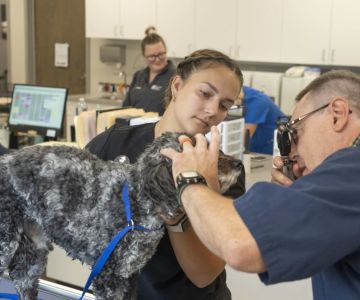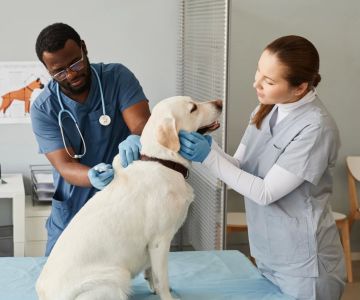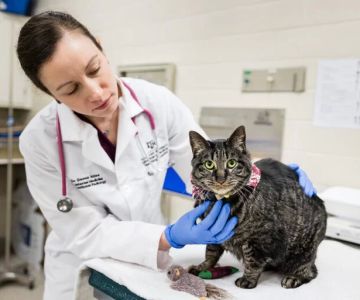- 1-Choosing-the-Right-Major-for-Veterinary-Career
- 2-Core-Science-Majors-Beneficial-for-Veterinary-School
- 3-Exploring-Non-Traditional-Majors-for-Veterinary-Pathways
- 4-Real-Life-Experiences-from-Veterinary-Students
- 5-Preparing-for-Veterinary-School-and-Next-Steps
1. Choosing the Right Major for Your Veterinary Career
When considering what majors should I take to become a veterinarian, many prospective students find themselves overwhelmed by the choices. The truth is, while veterinary schools often require a strong foundation in the sciences, there is flexibility in the specific undergraduate major you select. Selecting the right major means balancing your interests with the prerequisites veterinary schools demand.
Most veterinary programs look for applicants who have completed courses in biology, chemistry, physics, and animal science. Therefore, majors that encompass these subjects will best prepare you for the rigorous veterinary medicine curriculum ahead. However, it’s important to remember that passion and academic performance often weigh as heavily as the choice of major itself.
1.1 Why the Choice of Major Matters
Your undergraduate major will shape your academic experience and how prepared you feel entering veterinary school. Majors aligned closely with veterinary medicine prerequisites not only ensure you meet application requirements but also build your confidence with essential scientific concepts.
1.2 Common Misconceptions About Pre-Veterinary Majors
A common myth is that you must major in animal science or biology exclusively. In reality, veterinary schools accept a variety of majors, as long as the necessary coursework is completed. Some students excel coming from diverse academic backgrounds, which can enrich their perspective in veterinary medicine.
2. Core Science Majors Beneficial for Veterinary School
Many students aiming to become veterinarians choose majors deeply rooted in the sciences. Here are some of the most beneficial majors to consider:
2.1 Biology
Biology is often the top choice for aspiring veterinarians because it covers essential topics like anatomy, physiology, genetics, and microbiology. This major provides a broad understanding of living organisms and prepares students well for the biological demands of veterinary studies.
2.2 Animal Science
For those specifically interested in animal health and husbandry, animal science offers hands-on learning with livestock and pets. This major dives into animal nutrition, behavior, and breeding, giving practical knowledge valuable for veterinary medicine.
2.3 Chemistry
Chemistry is fundamental to understanding pharmacology, toxicology, and biochemistry—key elements of veterinary practice. A strong chemistry background will aid in grasping medication mechanisms and lab diagnostics.
2.4 Other Science Majors
Majors like biochemistry, zoology, and microbiology also provide solid preparation. The key is ensuring you complete the prerequisite courses required by veterinary schools, regardless of your major.
3. Exploring Non-Traditional Majors for Veterinary Pathways
Interestingly, students sometimes pursue majors outside traditional sciences and still succeed in veterinary school. For example, some choose psychology, nutrition, or environmental science to develop complementary skills. What matters most is completing veterinary prerequisites alongside your major and gaining relevant experience.
3.1 Case Study: A Psychology Major Becoming a Veterinarian
Take Emily, who majored in psychology but completed all science prerequisites. She credits her understanding of animal behavior and human-animal interactions to her psychology background, giving her a unique edge in veterinary practice.
3.2 Balancing Passion and Prerequisites
If you have strong interests outside of science, it’s possible to integrate those while preparing for veterinary school. This can make your application stand out and enhance your professional versatility.
4. Real-Life Experiences from Veterinary Students
Hearing directly from current veterinary students offers valuable insights. Jake, a biology major, shared that early exposure to lab work and internships solidified his career goals. He advises prospective vets to seek volunteer opportunities at animal clinics and shadow veterinarians to gain firsthand experience.
Meanwhile, Sara, who studied animal science, highlighted the importance of strong communication skills. Her major gave her technical knowledge, but interacting with clients and pet owners proved equally crucial in her training.
4.1 Lessons Learned
Their stories emphasize that while your major provides a foundation, practical experience and interpersonal skills play a critical role in becoming a successful veterinarian.
5. Preparing for Veterinary School and Next Steps
Once you’ve selected your major, the next step is to plan your coursework carefully and seek out internships or research opportunities. Veterinary schools value applicants who show both academic excellence and commitment to animal care.
5.1 Coursework Planning
Work with academic advisors to ensure you meet all veterinary school prerequisites. Maintaining a strong GPA in science courses is essential for a competitive application.
5.2 Gaining Relevant Experience
Volunteer at animal shelters, veterinary clinics, or research labs. This real-world experience not only strengthens your application but also confirms your passion for veterinary medicine.
5.3 Where to Find Resources and Guidance
For students wondering what majors should I take to become a veterinarian and seeking reliable guidance, platforms that curate educational resources and recommended programs can be invaluable. They help you identify courses, tutoring, and even application coaching to streamline your path.
Exploring quality resources will make your journey smoother and more rewarding, ensuring you are well-equipped to enter veterinary school and thrive in this rewarding profession.
If you are ready to take the next step toward becoming a veterinarian, consider exploring specialized study aids, pre-vet guides, and tutoring services tailored to your chosen major. Investing in these resources now can be the difference between a stressful application and a confident start to your veterinary career.











